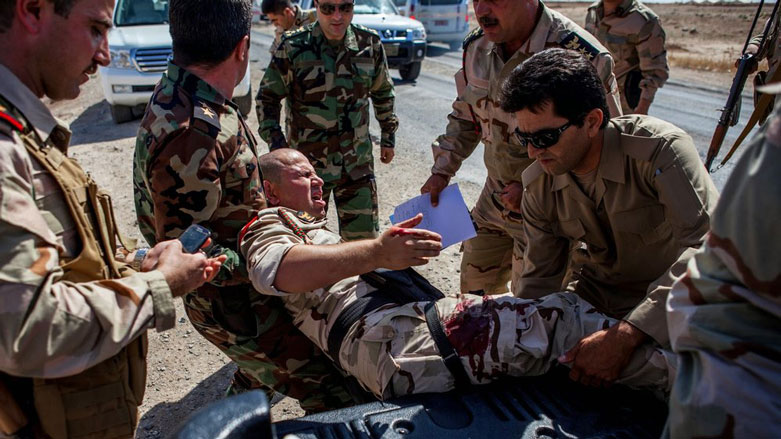758 wounded Peshmerga receive treatment abroad: Ministry

ERBIL, Kurdistan Region (Kurdistan24) – Several Peshmerga soldiers who were wounded while fighting the Islamic State (IS) have received medical treatment abroad, said a Peshmerga official on Monday.
The head of the medical department at the Peshmerga Ministry Maj. Gen. Muhsin Rasheed told Kurdistan24 some countries had expressed readiness to take more wounded Peshmerga for medical treatment.
“Romania has decided to treat 10 wounded Peshmerga,” Rasheed said.
“Three months ago, Italian Consulate in Erbil interviewed 15 Peshmerga and decided to take 13, but so far they have not been sent,” he added.
Following the emergence of IS in June 2014 in northern Iraq, Kurdish Peshmerga soldiers were the only troops who stopped the group’s advance and pushed them back as the Iraqi army collapsed.
The injuries of the many Peshmerga soldiers are critical, and their treatment cannot be found in the Kurdistan Region due to the lack of technologies, medical equipment, and experience.
Netherlands is another country which decided to accept some injured Peshmerga soldiers for medical treatment, but according to Rasheed the number has not been agreed yet.
Rasheed also revealed Hungary had treated eight injured Peshmerga soldiers, and have already received three more.
Hungary was also expected to take four more Peshmerga in the future, according to him.
Moreover, the Peshmerga official highlighted the efforts of some Kuwaiti doctors in Erbil who treat wounded Peshmerga troops voluntarily.
Turkey is another country who had taken many wounded Peshmerga soldiers in the past for medical treatment.
Former US Secretary of Defense Ashton Carter stated the Peshmerga are one of the most effective forces defeating IS militants.
Since June 2014, over 1,500 Peshmerga soldiers have fallen while battling the extremist group and about 10,000 more have been wounded.
Editing by Karzan Sulaivany
(Hoshmand Sadiq contributed to this report)
